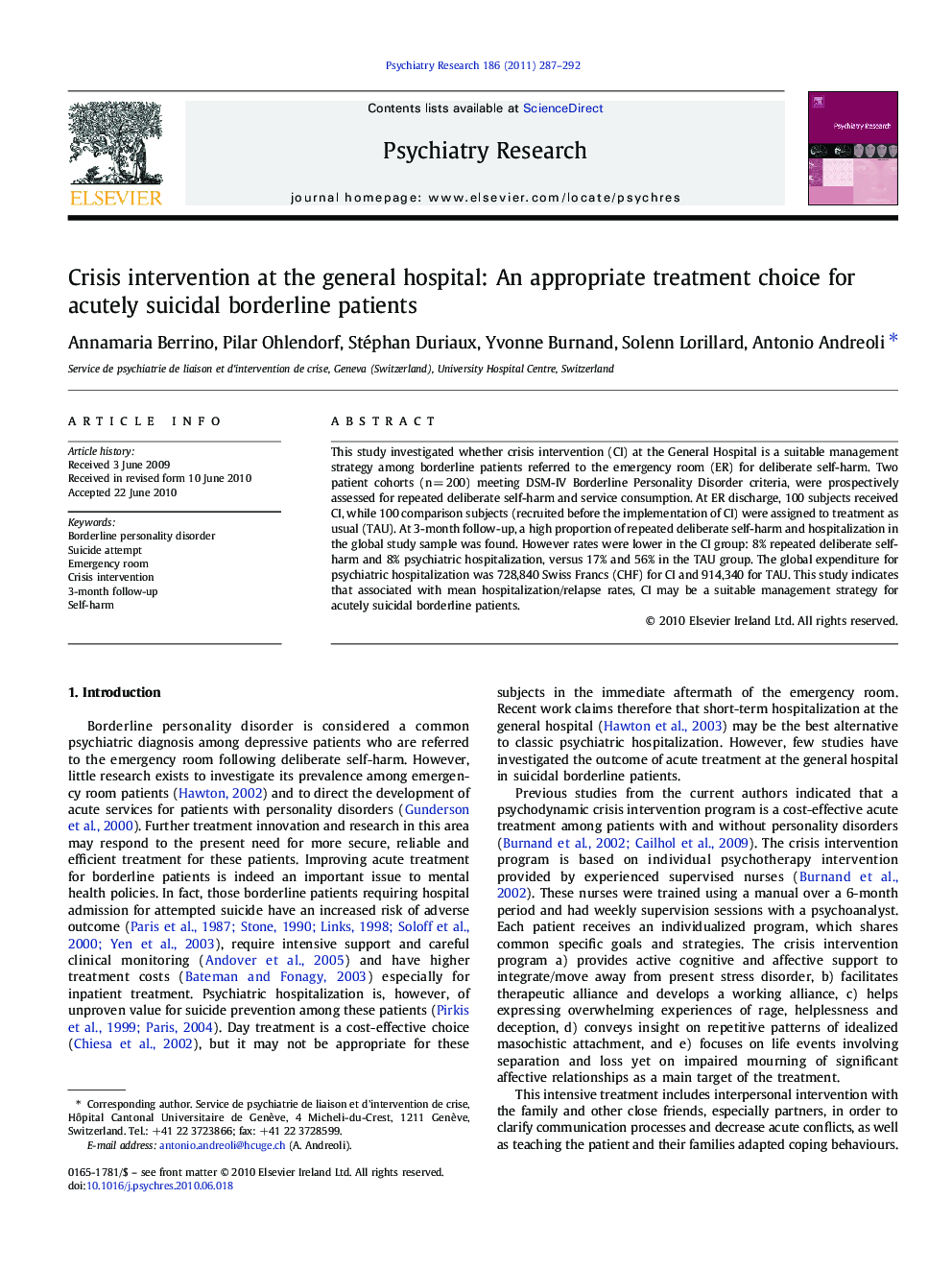| Article ID | Journal | Published Year | Pages | File Type |
|---|---|---|---|---|
| 332230 | Psychiatry Research | 2011 | 6 Pages |
This study investigated whether crisis intervention (CI) at the General Hospital is a suitable management strategy among borderline patients referred to the emergency room (ER) for deliberate self-harm. Two patient cohorts (n = 200) meeting DSM-IV Borderline Personality Disorder criteria, were prospectively assessed for repeated deliberate self-harm and service consumption. At ER discharge, 100 subjects received CI, while 100 comparison subjects (recruited before the implementation of CI) were assigned to treatment as usual (TAU). At 3-month follow-up, a high proportion of repeated deliberate self-harm and hospitalization in the global study sample was found. However rates were lower in the CI group: 8% repeated deliberate self-harm and 8% psychiatric hospitalization, versus 17% and 56% in the TAU group. The global expenditure for psychiatric hospitalization was 728,840 Swiss Francs (CHF) for CI and 914,340 for TAU. This study indicates that associated with mean hospitalization/relapse rates, CI may be a suitable management strategy for acutely suicidal borderline patients.
